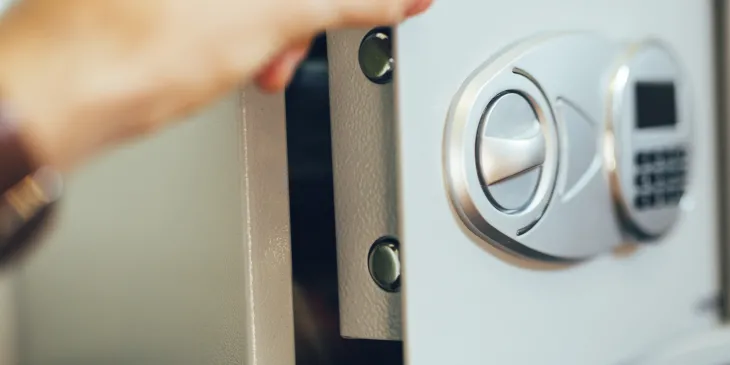
Trust funds offer a similar measure of security — financial security. Despite popular belief, trust funds are not just for the wealthy; anyone can use them to protect their loved ones with financial security.
Trust funds provide a financial safety net for your family in an unexpected tragedy. Creditors cannot access the money you place in a trust fund. However, the fund can pay for funeral expenses, medical bills, and other immediate needs. Trust funds can also ensure that your loved ones have the money they need to care for themselves financially, even after you're gone.
What Is a Trust Fund?
So, just what is a trust fund? A trust fund is like a particular savings account that allows you to set aside funds for a loved one while having a third party manage the account. You retain control over how and when money can be disbursed and used. This way, you provide controlled financial security to your beneficiaries.
We often think of beneficiaries in terms of life insurance—assets our loved ones gain after we have passed away. The same principles apply to a trust fund. However, unlike life insurance, a successor trustee can sometimes access the trust funds while you are alive.
Successor trustees manage trust accounts when you become incapacitated, but the rules of the trust you initially established still apply. After your death, trust funds can streamline the probate process, giving your beneficiaries faster access to funds while minimizing estate taxes.
Types of Trust Funds
There are three kinds of trust funds: revocable trusts, irrevocable trusts, and asset protection, and each works differently. Here's what you need to know.
Revocable Trusts
Revocable trusts are funds you can change or dissolve anytime while alive. It’s also known as a living trust. This type of trust gives you the most control over your assets. For example, you can use this trust to hold property, manage investments, and even distribute assets to beneficiaries after your death.
Pros:
- More control over the funds while you are alive
- You can dissolve or change the trust funds anytime
Cons:
- Not legally binding and may be subject to a court ruling on its status
- Creditors can go after assets in the trust if you owe them money
Irrevocable Trusts
You cannot change or dissolve irrevocable trust funds without beneficiary permission. Therefore, you have less control over the assets. Nevertheless, there are some advantages to consider. For example, assets held in this trust are no longer treated as part of your estate. That means they're not affected by estate taxes after you’re gone.
Pros:
- Assets are no longer part of your estate and aren't subject to estate taxes
- Creditors cannot go after assets
Cons:
- You have less control over the funds
- You cannot dissolve or change the trust without beneficiary permission
Testamentary Trusts
You can create a testamentary trust through your will, which doesn’t take effect until after you die. Additionally, it must go through probate before any distribution of funds happens. Lastly, creditors can go after testamentary trusts if you have lingering debt after you pass.
Many people use this trust to distribute assets to children under age 18 or beneficiaries with special needs. The trustee—the person responsible for managing the account—can use the funds for the beneficiary's health, education, maintenance, and support.
Pros:
- Assets benefit minor children or special needs beneficiaries
- Funds may go toward the beneficiary's health, education, maintenance, and support
Cons:
- Requires probate before any fund distribution
- Creditors can go after funds to satisfy any outstanding debt
How Do You Set Up a Trust Fund?
You can set up a trust fund through a financial institution, like a bank or credit union, but before you do, there are five questions you need to ask yourself:
- Where will the trust funds be held?
- Who will manage the trust?
- How long will the trust fund last?
- When and how can the money be used?
- Who will you name as the beneficiary?
Once you have the answers to these questions, schedule an appointment with one of our professional trust advisors to set up the trust fund you need.
The Final Word
Trust funds can be a great way to protect your assets and ensure that your beneficiaries receive the money you want them to have. Yes, there are a couple of drawbacks to each type of trust fund, but there are also benefits to consider. It's essential to understand how each one works before setting one up. Our team of professionals is available to help you make the right decision for your unique needs.
Sources
- https://www.nerdwallet.com/article/investing/setting-up-a-trust
- https://smartasset.com/estate-planning/how-to-set-up-a-trust-fund
- https://www.investopedia.com/articles/pf/12/set-up-a-trust-fund.asp
- https://keystone-law.com/can-trustee-withdraw-money-from-trust#:~:text=The%20short%20answer%20is%20yes,taking%20over%20as%20successor%20trustee.
- https://www.policygenius.com/trusts/what-is-a-testamentary-trust/#:~:text=Testamentary%20trusts%20have%20limited%20protections,from%20coming%20after%20your%20estate.
- https://www.extracobanks.com/personal/wealth-trust/trust-services




